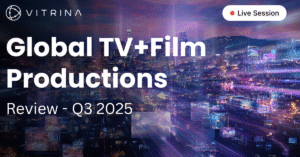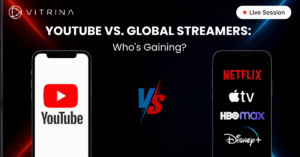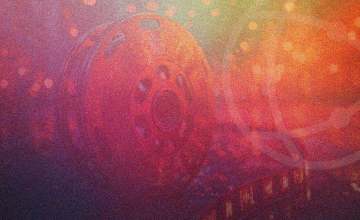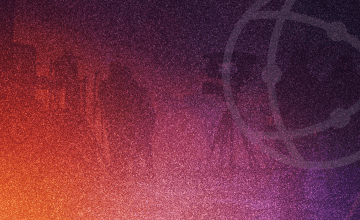Wyclef Jean, Grammy Award-winning musician, composer, and producer, believes the music industry is fundamentally broken. This conviction has led him to join OpenWav, a startup focused on restoring power to artists. The OpenWav app, launched this past summer, enables artists to release new music and exclusive content, engage directly with their fan base, sell merchandise, and host concerts, pop-up events, and listening parties.
The startup intends to further assist artists by integrating AI tools in the future.
At the Fortune Brainstorm Tech conference this week, Jean, now the chief creative officer at OpenWav, voiced strong criticism regarding the current state of the music industry, particularly targeting the business model employed by streaming services.
“If you’re a new artist, the number of streams that you have to accumulate to get $10,000 is literally a rip-off. So now you have a constant revolt,” he stated.
Jean cited Cardi B as a recent example of this issue, noting that her street sales of CDs and vinyl albums (promoted on TikTok) were not merely humorous, but an illustration of the worsening conditions for artists.
Jaeson Ma, co-founder and CEO of OpenWav, speaking alongside Jean at the event, highlighted the financial realities, stating, “Right now on Spotify… for $3,000 you have to hit 1 million streams.” Ma, a media industry entrepreneur, investor, and advisor, has supported numerous startups, including Musical.ly (now TikTok), Triller, Coinbase, Grab, and others. He also co-founded multiple media companies and the NFT app OP3N.
Ma explained that this flawed industry model is the primary reason OpenWav is developing a direct-to-fan music platform.
He agreed with a recent social media post from singer Lizzo, who lamented the absence of a “song of the summer,” noting that “the algorithms are not rewarding music.”
Ma further clarified that the goal for artists today should not be amassing millions of listeners on Spotify, but rather cultivating a dedicated base of 1,000 true fans.
“If you have 1,000 true fans that give you $10 a month — which is a Starbucks coffee times 1,000 — that’s $120,000 a year as an independent music artist. Think about that.” (The accurate figure is $100,000, however his point remains valid; there is a substantial opportunity to monetize the direct-to-fan model.)
“Spotify is not paying you. Instagram, TikTok’s not paying you. But your true fans will pay you. They’ll buy your tickets. They’ll buy your exclusive music — your music dropped first on OpenWav. They’ll buy your merch. And if you’re making that type of money — just 10 bucks a month — you can actually build a sustainable career,” Ma stated.
OpenWav is not alone in exploring the potential of turning “super fans” into a revenue source for artists. Spotify has also expressed interest in creating a super-fan platform, communicating to investors its plans to introduce a premium tier that would provide fans with early access to concert tickets, additional features, and other exclusive benefits. The company is currently in discussions with labels such as Universal and Warner Music to facilitate this initiative.
However, OpenWav’s focus would primarily be on independent and emerging artists, rather than the major artists targeted by Spotify.
This concept is not entirely new. Spotify previously ventured into this area, providing a platform for indie artists to upload their music back in 2018. However, this effort was discontinued due to pressure from label partners who believed it would negatively impact their sales.
In response to a question regarding OpenWav’s competitive advantage, Ma acknowledged the presence of other fan platforms but asserted that none provide the comprehensive, integrated services offered by OpenWav.
“When you come onto OpenWav, you’re able to sell tickets and earn 80% of the profit — 20% [goes to] the platform enabling you to sell tickets to your shows,” he said. “Everyone that buys a ticket goes into the event chat, like a Discord, and you’re able to literally communicate and integrate and network with the very people that are buying the tickets to your shows,” Ma continued. “Then you’re actually able to drop merch in that same community chat with zero upfront costs, no inventory, global dropshipping.”
Furthermore, artists using the platform would retain ownership of their audience data, including email addresses and phone numbers.
The platform also equips artists with AI tools to design merchandise, a feature that both Jean and Ma highlighted with enthusiasm. Jean emphasized the ability of AI to empower musical artists to create more, while Ma noted that even record producer and songwriter Timbaland has adopted the AI music service Suno as a sampler to enhance his existing work.
OpenWav plans to utilize AI to function as a virtual manager for artists, suggesting tour locations, merch ideas, and providing resources for creating album art and lyric videos.
“What we see with AI is that AI is going to be your best friend as an artist,” said Ma, who said some AI features would arrive in the app’s “phase two.” OpenWav is currently available for consumers on iOS and Android devices.
Persons: Wyclef Jean, Cardi B, Lizzo, Jaeson Ma, Timbaland
Company Names: OpenWav, Spotify, TikTok, Musical.ly, Triller, Coinbase, Grab, NFT, OP3N, Universal, Warner Music, Starbucks, Instagram, Discord, Suno
Disclaimer: This article has been auto-generated from a syndicated RSS feed and has not been edited by Vitrina staff. It is provided solely for informational purposes on a non-commercial basis.






























